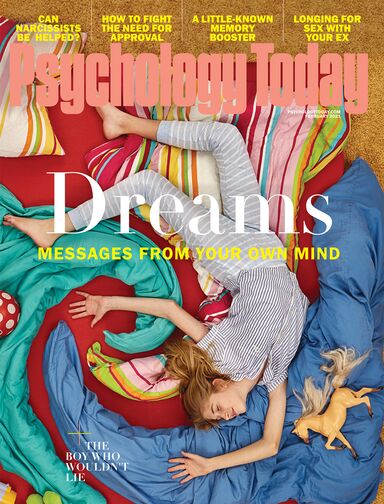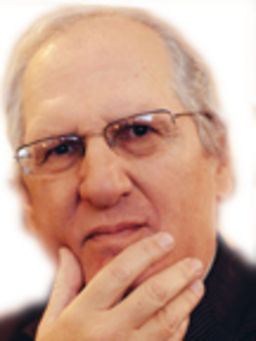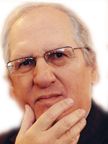Wounded Healer: Rollo May's Psycho-Spiritual Odyssey
Part 2. A conversation with biographer Robert Abzug.
Posted Jan 14, 2021
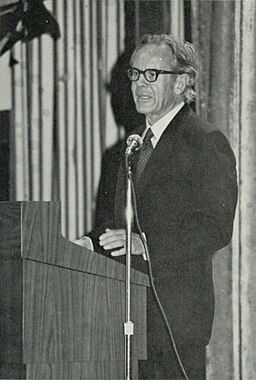
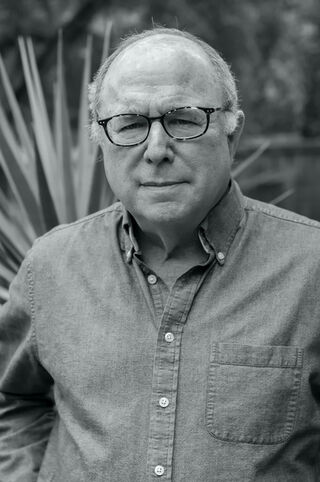
Robert H. Abzug, author of Psyche and Soul in America: The Spiritual Odyssey of Rollo May (2021, Oxford University Press) has taught at the University of Texas at Austin since 1978, and is currently Audre and Bernard Rapoport Regents Chair of Jewish Studies and Professor of History and American Studies Emeritus. He is the founding Director of the University's Schusterman Center for Jewish Studies (2007). He also held the Eric Voegelin Visiting Professorship at the University of Munich in 1990-91. All of Abzug's work centers on the evolution of moral and ethical sensibilities in American society, and includes, among other books, an abridged edition of psychologist William James's The Varieties of Religious Experience (2013). What follows is a slightly edited transcript of my conversation with Professor Abzug regarding his soon-to-be-released authorized biography of Dr. Rollo May.
DIAMOND: Tell us a little about your professional background and what prompted you to take on the considerable and no doubt daunting creative challenge of writing the first authorized biography of Rollo May, one of America's most influential psychologists.
ABZUG: Good question. Writing about Rollo was a departure for me. When he and I first met I was in the midst of writing a book about religion and reform in the pre-Civil War era and had just published a book about the liberation of Nazi concentration camps. While I found psychology and psychotherapy compelling both personally and intellectually, I hadn’t considered writing about that world. However, circumstances conspired to cause me to shift focus, and lots of it had to do with meeting and then getting to know Rollo and his history. Psyche and Soul in America: The Spiritual Odyssey of Rollo May owes its existence to a serendipitous slip of the tongue. In the late 1980s my friend the late John Vasconcellos, a humane and powerful member of the California legislature, came to Austin on state business. We invited him to our house for dinner and somewhere around dessert he raised a heartfelt concern. Carl Rogers, the great psychologist whom John revered as both mentor and friend, was not well. John wondered whether anyone would write a biography of Rogers that did justice to his importance. I expressed sympathy and assured him that someone would write about him. I didn’t expect John’s next words—"Bob, you ought to write about Carl.” I replied with an emphatic “No.” I told him that a biographer had to feel some gut connection to the subject and that Rogers didn’t move me. I added that if I ever were to write about a psychologist, it would be of someone who displayed his emotions in his writings and public presentations, someone like Rollo May. John’s response was, “Let’s get together with Rollo the next time you are in the Bay Area.” A year later, the three of us met in a Sausalito café. Being with Rollo was a treat but I wondered if I really had an interest in telling his life story. Nor was he necessarily eager to have a stranger write about what he considered a somewhat messy life. So, we talked about everything but the biography while John sat impatiently, a matchmaker at the first date, waiting to broker a deal and faintly amused by the coyness all around. Rollo and I exchanged addresses and phone numbers. I sent him copies of my books and plunged into his work as well as the basic accounts of his life. By the 1990s, Rollo was ready to allow me unrestricted access and use of his papers and I was convinced that his life was very much worth exploring. It didn’t quite fit into my professional pigeonhole. Yet, with the ease of our relationship and my growing admiration for May’s breadth of thought, from the Greeks to Kierkegaard and beyond and across numerous disciplines, had a magnetic pull on me. I discovered that his story was something of an American epic, not simply a significant chapter in the development of psychology. And it illustrated an implicit theme of all my work—the sometimes tortured search for spiritual and psychological order in the ever-changing anarchy of the American imagination and the role that religion and psychology played in it. . . . In this sense too, Rollo May’s life has proven to be immensely illuminating.
DIAMOND: The fact that Rollo entrusted you with the Herculean task of being his biographer based mainly on that meeting is remarkable. He must have sensed you were trustworthy and would be able to write about his life lucidly, insightfully, and objectively as a professional historian. Were there many subsequent meetings? And/or correspondence? How did he feel about being the subject of such intense scrutiny and eventual public exposure? For example, did he ever discuss his own psychological typology? This sort of personal exposure would, it seems, be especially distasteful to introverts in particular, who tend to treasure and protect their privacy.
ABZUG: It actually took almost five years for us to finally come to a signed agreement about the papers and therefore the biography. That confidence on both sides was won through meetings each year between 1986 and 1991, once in Washington, two or three times at Holderness, and many three or four day weekends in Tiburon. We talked formally—for the book—but also informally in exchanges about each of our lives. In short, though there was an agenda, we developed a trusting friendship. This was helped enormously by the presence of Georgia May, whose graciousness and hospitality matched her own intellectual acuity and fullness of thought and emotion during these meetings. However, I do think that the first meeting in Sausalito and my later first trip to Tiburon must have sparked an unspoken ease from the beginning. . . . Our relationship and May’s willingness to reveal his life within the intimate evidence that letters, diaries, and self-contemplation provide began with a kernel of possible trust and understanding, something we all recognize in the forging of friendships. BUT there are other factors. We met when Rollo was 77, and though he had numerous books, articles, and organizational work ahead, he was also very concerned about the fate of his legacy in the public, psychological, and, in more general ways, spiritual worlds. In some sense I was the nice guy who by luck came along at the right time. I’m not sure he could have predicted the intimate nature of the final book. However, in our discussions he was forthright on the record. I might add that, perhaps more than anyone that I have worked with, his oral narrative jibed virtually point by point with the story contemporary manuscripts told. I also think it helped enormously that I was, among other things, a student of American Protestantism in its more liberal and radical moments. That was the world from which May emerged and never entirely left. His wrestling with faith and what he considered the hypocrisy of much everyday religion was the basis on which he both was attracted to psychoanalysis and to such great Protestant thinkers as Søren Kierkegaard, Reinhold Niebuhr, and especially Paul Tillich.
Finally, Rollo was anything but an introvert. And, from the beginning of our conversations, he talked quite frankly about his private life and public aspirations. From his early twenties onward, he dreamed of having an enormous international impact, relished invitations for lectures and sought a wide readership for his books. While neither he nor I used psychological typology in looking at his life, one thing I would say in common language is that as active as he was in the world--and not just from the world of the book and lecture platform but also working closely with others--he treasured the aloneness he gained in Holderness, New Hampshire and carved out for himself in New York and finally, Tiburon in the San Francisco Bay Area.
For my introduction to and review of Robert Abzug's new biography of Rollo May, see Part 1. Part 3 of my continued conversation with Professor Abzug regarding the book follows shortly.
